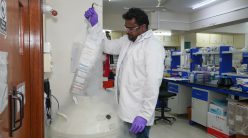A closer look at the newly established play school on campus, and a crèche which is more than two decades old
As I walk past the Canara Bank down the road lined by Gulmohar trees in IISc’s campus, a clamour suddenly interrupts the usually tranquil Institute. The sounds emanate from the IISc Employees’ Association Crèche.
For many years, the IISc Employees’ Association had lobbied with the administration for the setting up of a day care facility on campus. And in 1990, realising the perils of losing the valuable services of its women employees, the Institute set up this facility in a small room at the Tata Memorial Club. Two years later, the crèche, which was inaugurated by IISc’s then Director, CNR Rao, moved to its own building, nestled between a playground and the Employee Association Union office.
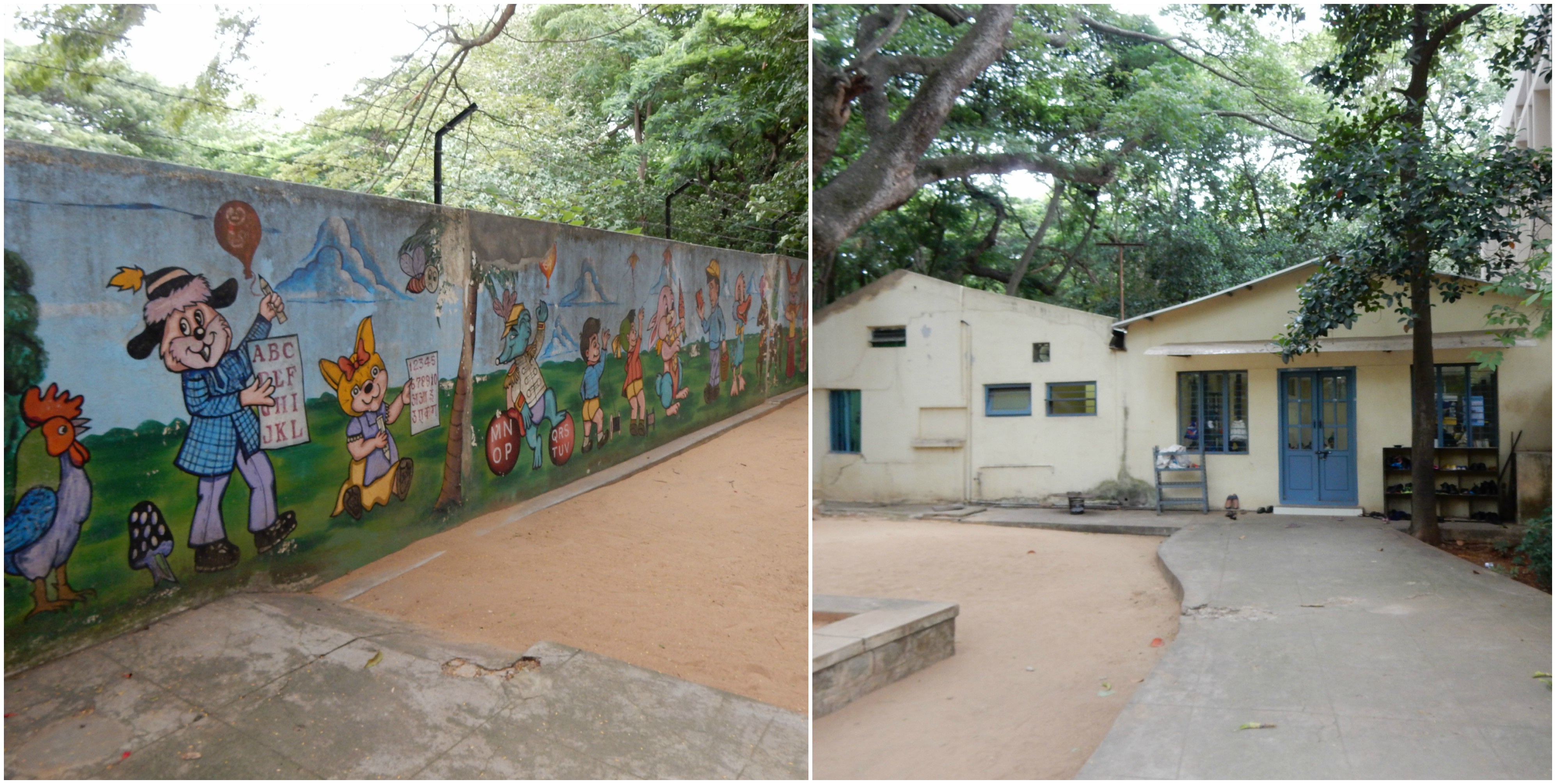
A narrow passage leads me to a gate of the crèche. As I enter its premises, a brightly painted wall catches my attention. Soon I find myself in a room filled with children belonging to different age groups. The room is bustling with activity – most children are playing games as they wait for their parents, though some are engrossed in their books, while others are enjoying an evening snack.
Since its inception, the facility has been managed by Uma Manohar. With the help of four support staff, Manohar works on creating an environment conducive for play and learning, while ensuring that children are fed on time. She also looks after the admission process and fee collection.
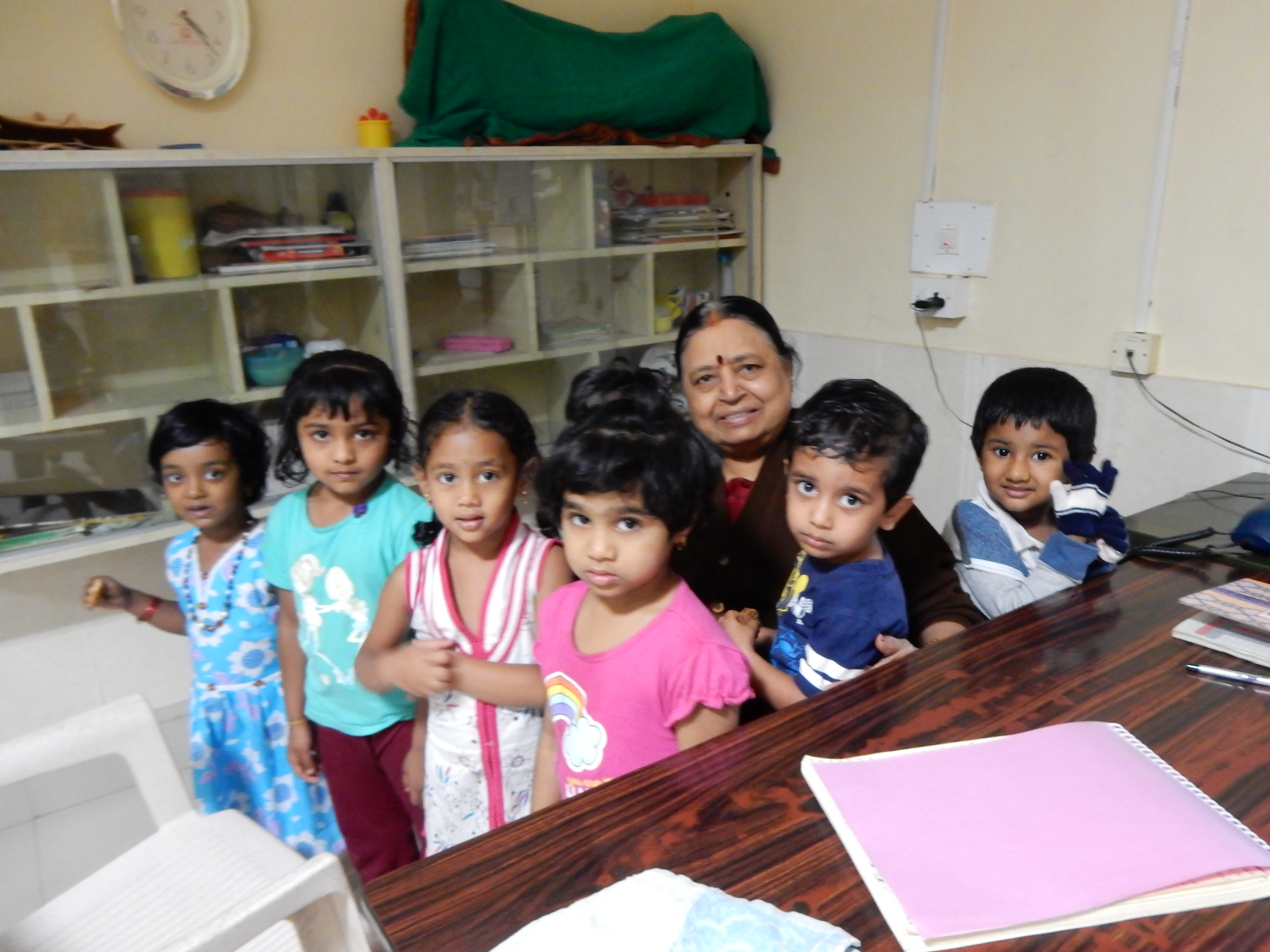
The facility began functioning with only five children; today the strength is 85. Manohar takes me by surprise with her eidetic memory – she recalls names of the first five children. “Pawan was the first child to walk into our doors. These children have grown up to be successful in their respective fields. It is heartening to see them pay me a visit even after so many years,” she adds with a hint of pride and happiness on her face.
“Pawan was the first child to walk into our doors. These children have grown up to be successful in their respective fields. It is heartening to see them pay me a visit even after so many years,” she adds with a hint of pride and happiness on her face
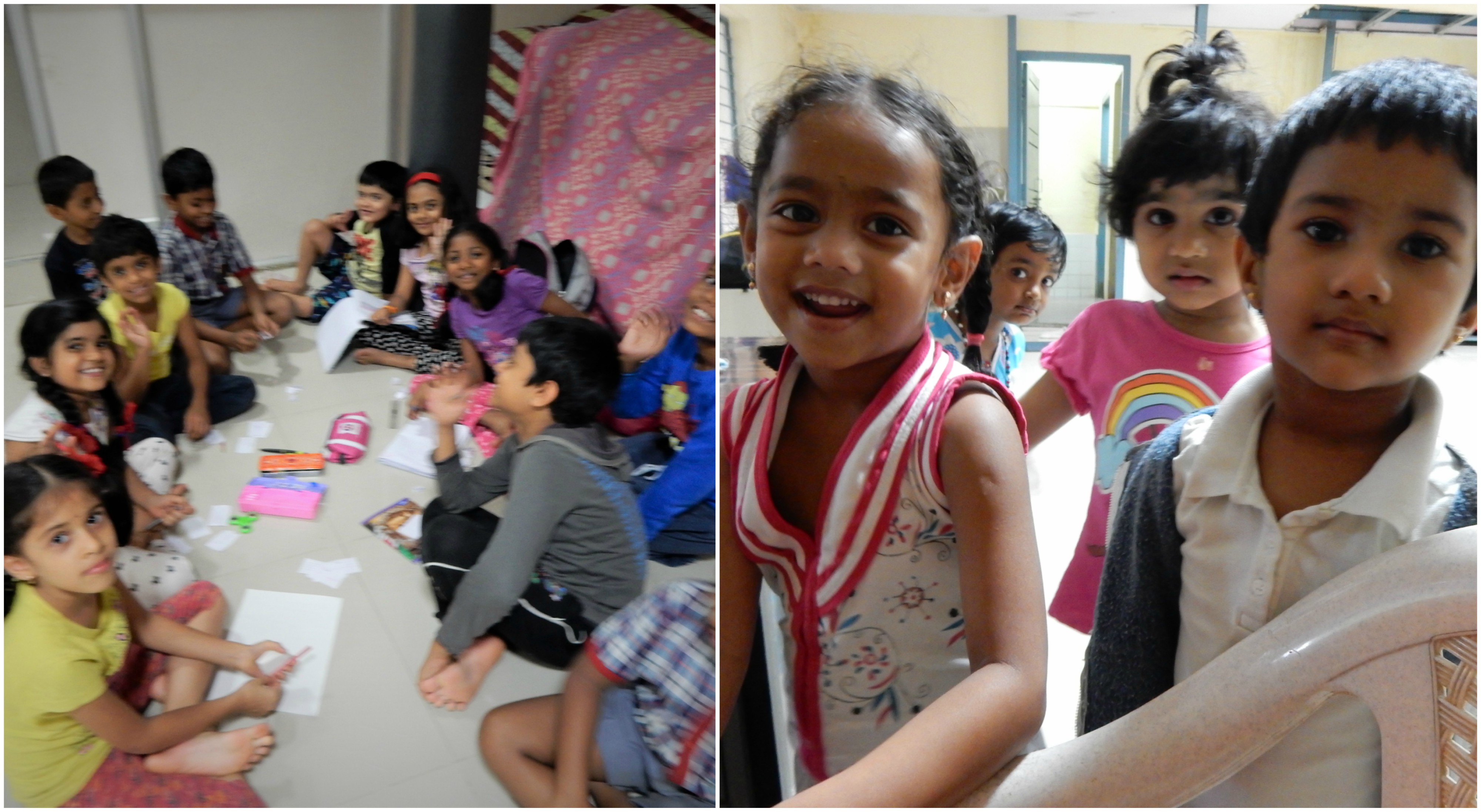
During my visit, the children were clearly having a good time. A playful 8-year-old Krithika says, “I like coming here because it’s very pleasant and I can play with my friends after school.” Eleven-year-old Sudhavna, a regular here for the last nine years, divides his time playing and studying. “When I have difficulties studying, I approach my friend at the crèche or my teacher [Manohar],” he says.
In addition to this facility, IISc is now also home to a new play school and day care centre. It is a franchisee of Little Elly, a prominent chain of play schools operating in several cities in the country.
In addition to this facility, IISc is now also home to a new play school and day care centre. It is a franchisee of Little Elly, a prominent chain of play schools operating in several cities in the country
The play school, called Elly Day Care Centre, is housed in an old bungalow, once home to several illustrious faculty from the Institute. The Centre, which began operating a month ago, has opened its doors to children between the ages of 6 months to 12 years.
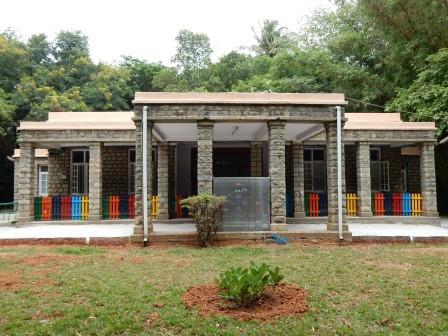
Now renovated, this place has an inviting feel to it. Showing me around the facility – open to children of permanent staff, students, and faculty – Jayashree, the coordinator of the centre, tells me that currently, 43 children are on roll. She adds that the learning curriculum here is theme-based. We are interrupted by a sudden synchronised shout of “orange fish!” which helps me understand what Jayashree meant. I inch closer to find a group of enthusiastic young children sitting around an aquarium discussing the theme for the day – goldfish. They describe various attributes of the fish: its colour, how it moves, how it breathes and so on. This discussion encourages easy and creative learning. The school aims to train children to become better communicators with well-developed social and cognitive skills.
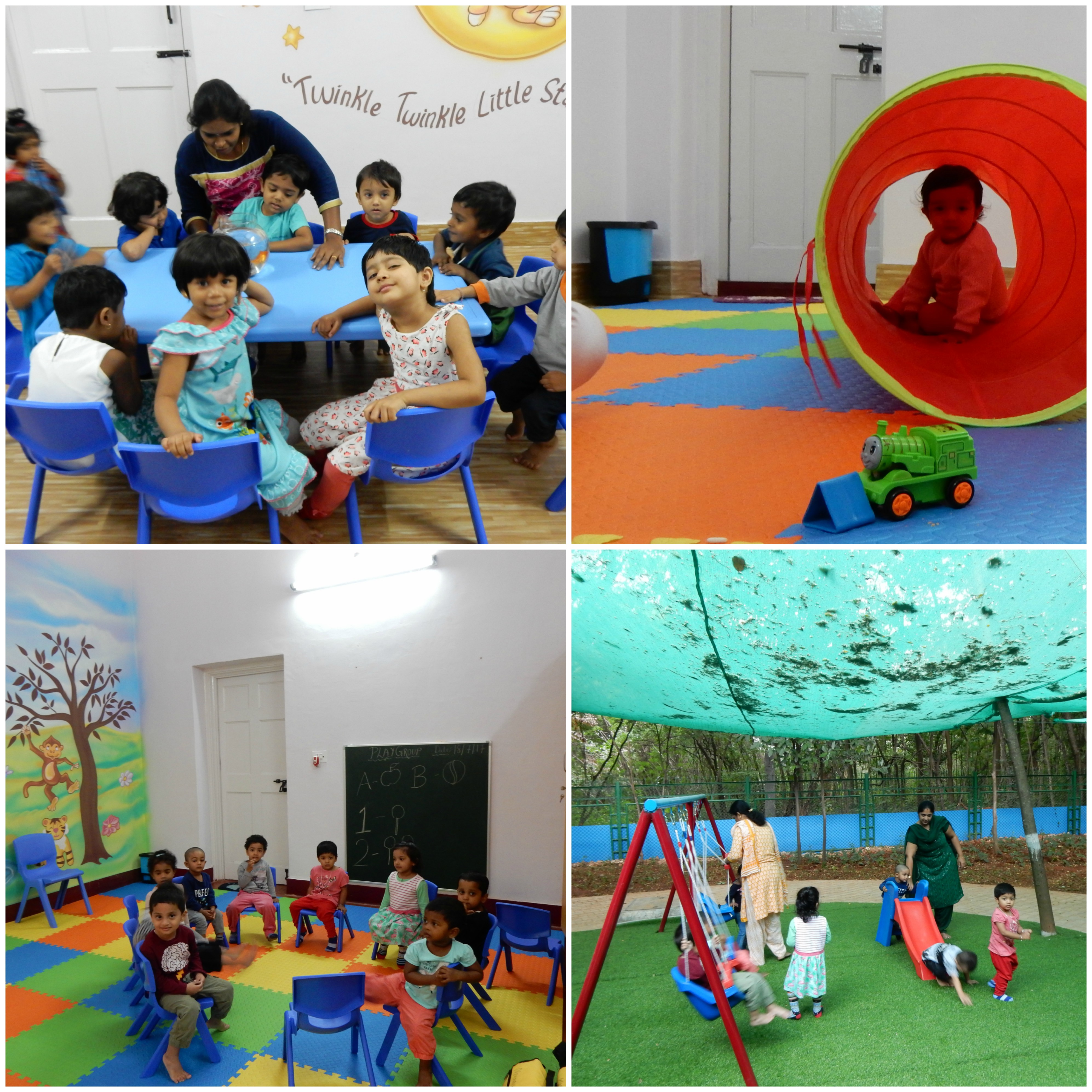
The interior of this building has brightly painted walls, toys, even a TV to show movies. And behind the building is a tiny playground with swings and slides, keeping the children in high spirits. A CCTV camera helps teachers and support staff keep an eye on children at all times.
Day care centres like the ones at IISc not only ensure that children have a safe place where they get to play and learn, but they also encourage women to continue with their jobs. According to Frederico Gil Sander, Senior Country Economist, World Bank, 65% of Indian women of employable age with college degrees are not working. This is partly due to limited childcare options. Another survey conducted in 2015 by one of the apex trade associations, ASSCHOM, revealed that 25% of first-time mothers quit their jobs to raise their children.
In a bid to encourage women to pursue their careers even as they have their families, the Government of India, under the amended maternity benefit law, has introduced a mandatory rule that offices should provide crèche facilities if they have more than 50 employees.



